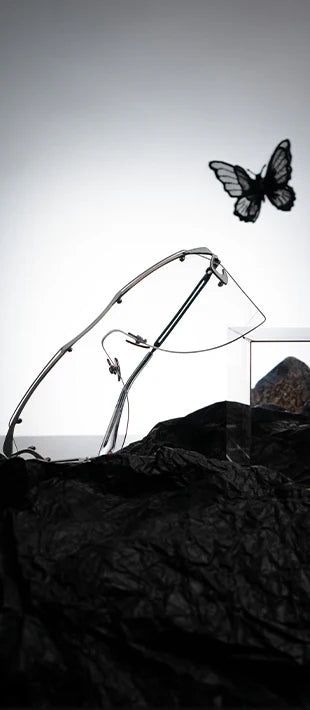When most people think of Halloween, they imagine pumpkins, spooky costumes, and trick-or-treating through dark autumn streets. But in Greece, Halloween carries a very different story. Do they celebrate Halloween in Greece? While it's not a traditional Greek holiday, the country has its own ancient and cultural versions of honoring spirits, disguises, and seasonal change — themes deeply embedded in Greek history.
From the Dionysian festivals of ancient times to the colorful Apokries carnival that fills modern Greek streets with joy, Greece has long celebrated the connection between the human world and the mystical. Let's explore how Halloween in Greece is understood today, its traditional equivalents, and how it compares to North and South American celebrations.
Ancient Greek Origins: The Spirit of Dionysus
Long before Halloween existed, the ancient Greeks celebrated life, death, and rebirth through rituals connected to Dionysus, the god of wine, theater, and transformation. These early festivals, often held in winter and early spring, involved masks, costumes, and dramatic performances—not unlike today's Halloween costumes.
The purpose was spiritual and social:
To honor Dionysus and the cycle of nature.
To ward off evil spirits through laughter, disguise, and noise.
To celebrate community through shared food, wine, and dance.
These Dionysian traditions planted the seed for Apokries, Greece's modern carnival season that mirrors Halloween's playful side but with joy instead of fear as its central theme.

Apokries: Greece's Carnival Season
If there is a "Greek Halloween," it's called Apokries (Απόκριες). This celebration happens 40 days before Orthodox Lent, usually in February or early March, and lasts for about three weeks.
Apokries literally means "away from meat," marking the start of the fasting period before Easter. But before the fast, Greeks indulge in joy, costumes, and community events that transform cities into stages of laughter and color.
What is Apokries include:
Costume parties and street parades—people dress up as anything from mythical creatures to pop-culture icons.
Traditional mask dances inspired by ancient Dionysian rituals.
Patras Carnival, Greece's largest and most famous carnival, featuring floats, music, and fireworks.
Family gatherings and feasts, especially on Tsiknopempti ("Smoky Thursday"), where the smell of grilled meat fills the air.
While Apokries doesn't involve pumpkins or trick-or-treating, it shares Halloween's essence: transformation, creativity, and the symbolic escape from everyday identity.
Shop greek party sunglasses - AVA ZERO
Psychosavvato: The Greek "Day of the Dead"
For Greeks, remembering and honoring the dead doesn't happen once a year—it's a sacred practice woven into the Orthodox calendar.
The Psychosavvato (Ψυχοσάββατο), or "Saturday of Souls," occurs several times a year, most importantly before Lent and Pentecost. It's a quiet, spiritual day dedicated to loved ones who have passed away.
Traditions include:
- Visiting cemeteries and lighting candles for the departed.
- Preparing koliva, a mixture of boiled wheat, pomegranate, raisins, and nuts symbolizing resurrection and eternal life.
- Offering prayers and blessings for the souls of ancestors.
Unlike Halloween's playful spirit, Psychosavvato is solemn and reflective, focusing on peace and remembrance rather than fear or trickery. Yet, both share a deep awareness of the spiritual connection between the living and the dead.

Modern Halloween in Greece: A Growing Trend
While Halloween has no ancient roots in Greece, modern influences are changing that. Thanks to globalization, movies, social media, and expat communities, Halloween celebrations are becoming more common, especially in big cities and tourist destinations.
You'll now find:
- Halloween parties in Athens, Thessaloniki, and on islands like Mykonos and Santorini.
- Pumpkin-themed decorations in cafés and shops.
- Costume contests at schools and international clubs.
A growing trend among younger generations to celebrate it for fun and fashion, rather than spiritual meaning.
However, it remains a Western import, more about enjoying the global culture of dressing up and celebrating the spooky season than reviving ancient Greek customs.
Shop party sunglasses - Eosephoros
Cultural Symbolism: Masks, Spirits, and Renewal
What's fascinating is how Greek and Halloween traditions converge symbolically, even without direct connection.
Both share three key themes:
1. Disguise and Freedom—In both Apokries and Halloween, wearing a mask allows people to temporarily escape their roles, expressing hidden parts of themselves.
2. The Spirit World—Both cultures acknowledge that there are times when the line between the living and the dead feels thinner—whether through Halloween's ghost stories or Psychosavvato's prayers.
3. Seasonal Transition – Ancient Greeks celebrated Dionysus as a symbol of death and rebirth in nature, just as Halloween marks the shift from summer to winter, light to darkness.
These parallels show that the human fascination with transformation and the supernatural is universal—just expressed differently in each culture.
What Is Halloween Like Around the World
While Greece approaches the season through its ancient rituals and Orthodox traditions, Halloween in the Americas has evolved into a major cultural and commercial event. Let's explore the difference:
North America: The Modern Halloween
In North America, particularly the United States and Canada, Halloween is celebrated on October 31 with massive enthusiasm. It combines Celtic traditions (Samhain) with Christian All Hallows' Eve, and has evolved into a day of:
Trick-or-treating for children.
Pumpkin carving and haunted house tours.
Horror movies, parties, and creative costumes for all ages.
Halloween in the U.S. is also a multi-billion-dollar industry, deeply rooted in pop culture and entertainment.
Shop party sunglasses - Erised
South America: The Day of the Dead Influence
In South America, Halloween shares space with Dia de los Muertos (Day of the Dead)—especially in Mexico and parts of Central America.
While visually colorful and festive, the focus is on honoring ancestors rather than scaring away spirits.
Families build altars (ofrendas) with food, flowers, and photos of loved ones, blending Indigenous beliefs with Catholic faith.
Greece: Tradition Meets Modern Curiosity
Greece stands somewhere in between—deeply spiritual yet open to modern trends. Instead of one night of horror, it has Apokries for fun, and Psychosavvato for remembrance. The modern Halloween movement is growing, but it's being adapted to fit Greek culture's unique rhythm—where every celebration connects joy, history, and meaning.















